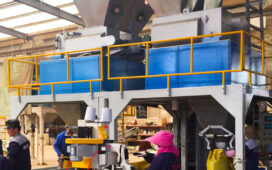The essence of medical injection molding applies to the manufacturing of medical devices and components using medical-grade plastic materials that meet FDA regulations, are reliable, and are durable. While the applications require tight tolerances and consistency, it tends to be perfect for high volume production runs as the medical plastic injection molding process is cost-effective. Experts also use this molding process for medical device prototype development in laboratory testing and the FGA approval process.
The industry has several brands as leading providers of medical plastic injection molding components and parts. These brands’ medical device plastics and medical device prototype development are among the best in the country.
Advantages of Medical Plastic Injection Molding
Since people can combine medical device plastics with metal to create improved medical product attributes and offer increased versatility, medical-grade plastics have become the preferred option for several electronic medical devices. Here are a few benefits the medical injection molding firms can offer:
- Sterilization’s decreased burden
- Lower cost
- Increased functionality
- Reduced weight
- Improved ergonomics
Why Medical Field Needs Plastic Injection Molding
There has been a steady increase in the use of plastics within modern medicine since its inception. Medical devices manufactured from injection molded plastic have reduced pain management, infectious disease, and medical costs. Professionals use high-tech polymers within medical device prototype development. Experts also typically use these cases to create enhanced artificial limbs and devices that reduce infection risk. The ability to save more lives and increased patient safety are the common uses of medical plastic injection molding.
Medical Device Plastic Injection Molding Applications
Many companies in the field produce delivery devices for sutures, implants, stents, and more using medical injection molding processes. They provide assembly services for subcomponents of more complicated, larger medical devices. They also manufacture plastic moldings that host other non-plastic mechanisms or components, in addition to medical injection molding. Therefore, these firms can create housings for medical devices through their medical insert molding processes, including:
- Prosthetics
- Medical equipment components
- Dental instruments
- Tubes
- Surgical blades and instruments
- Needles
- Medical knobs
- Medical enclosures
These companies utilize state-of-the-art vertical medical injection molding workstations dedicated to manufacturing products, components, and parts for the medical industry. They have also forged healthy and solid relationships with many trusted vendors who supply high-quality metal components for medical device injection molding projects because of their industry experience.
Medical Molding Using Medical Grade Plastic Resins
Many of these companies utilize various unique materials for medical plastic injection molding. It makes it possible for them to provide the perfect medical plastics for their project’s requirements. They also use different engineering resins for their medical injection molding that provide excellent mechanical properties, such as high-temperature load ratings to prevent deformation because of heat exposure during sterilization and high tensile strength to resist breakage.
Medical Device Injection Molding Prototype Development
Experts will need to create fully functioning components for testing for FDA approval processes regarding medical device prototype development. Many of the companies in this field use state-of-the-art methods. They also utilize top-notch medical-grade plastic materials for their medical device prototype development services.







